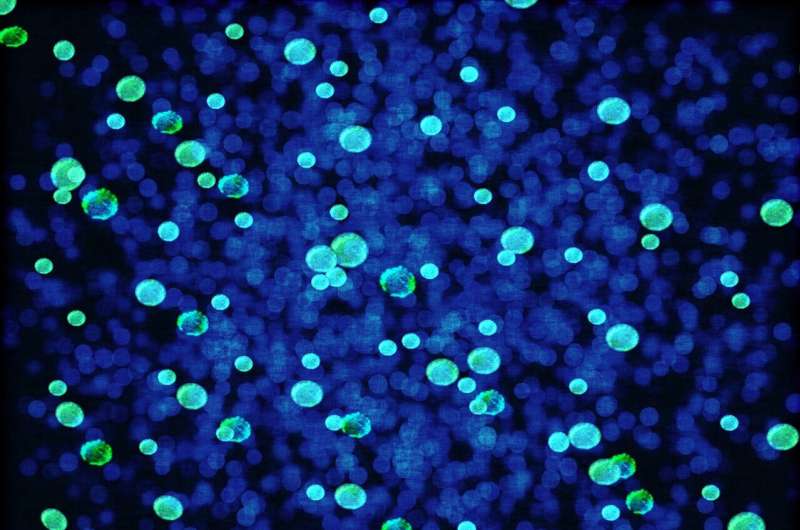How Immune Cells Use 'Mini-Hulk' Mechanics to Navigate Tight Spaces in Tissues

A groundbreaking study uncovers how immune cells, dubbed 'mini-Hulks', generate forces to push through tissues, ensuring effective immune surveillance and response. This mechanism involves a central actin structure that helps dendritic cells navigate tight spaces safely, with implications for understanding immune deficiencies.
Recent research by the Sixt group at the Institute of Science and Technology Austria (ISTA) reveals a fascinating mechanism used by immune cells, specifically dendritic cells, to traverse complex and confined tissue environments within the body. These immune cells rely on their robust cytoskeleton to exert forces on their surroundings, allowing them to push through tissues without causing excessive damage. The study, published in Nature Immunology, uncovers how dendritic cells activate a central actin structure—akin to a 'mini-Hulk'—that functions like a mechanical force to displace obstacles and create pathways for migration.
Dendritic cells play a vital role in immune surveillance, patrolling peripheral tissues such as the skin for pathogens. Upon detecting an infection, they migrate toward lymph nodes to initiate immune responses by interacting with T cells. Their journey through three-dimensional tissues can be fraught with physical barriers. While some cells secrete enzymes to digest and clear the path, dendritic cells employ a different strategy to avoid damaging tissues.
When encountering narrow spaces too tight to pass through, dendritic cells assemble a specialized actin structure at their center. This actin mesh generates outward forces—similar to a 'mini-Hulk'—that push against surrounding obstacles, effectively repositioning tissue fibers and opening a passage. This mechanism allows the cells to move forward smoothly, maintaining tissue integrity.
The research team also demonstrated that mutations in the Dock8 gene impair this process. Dendritic cells lacking functional Dock8 cannot form the central actin structure necessary for force generation. As a result, these defective cells become trapped in tissue barriers, extend abnormal protrusions, fragment, and ultimately die. This insight helps explain the immune problems seen in individuals with Dock8 mutations, which cause a rare immunodeficiency characterized by recurrent infections.
This discovery highlights a new aspect of cellular migration, emphasizing the importance of coordinated force generation at both the front and center of immune cells. It advances our understanding of how immune cells efficiently navigate the body's complex tissue landscape without compromising their own structure or function.
For more details, see the original publication: Reis-Rodrigues, P. et al., "Migrating immune cells globally coordinate protrusive forces," Nature Immunology, 2025.
Stay Updated with Mia's Feed
Get the latest health & wellness insights delivered straight to your inbox.
Related Articles
Relationship Between Emotional Demands in Personal Interaction Jobs and Increased Risk of Type 2 Diabetes
A new study reveals that high emotional and confrontational demands in jobs involving direct contact with people may significantly increase the risk of developing type 2 diabetes, especially when social support at work is low.
'Good' Gut Bacteria Promote Placenta Health and Support Healthy Pregnancy
Discover how beneficial gut bacteria like Bifidobacterium breve influence placental hormone production and support healthy pregnancy outcomes, opening new possibilities for prenatal health interventions.
Maternal Microbes Influence Early Brain Development, New Research Finds
Emerging research reveals that maternal microbes play a vital role in early brain development, affecting regions responsible for stress and social behavior, with implications for obstetric practices.
Understanding What Attracts Mosquitoes to You
Discover the surprising factors that make some people more attractive to mosquitoes, including recent alcohol, drug use, and sunscreen application, based on a unique festival study.



